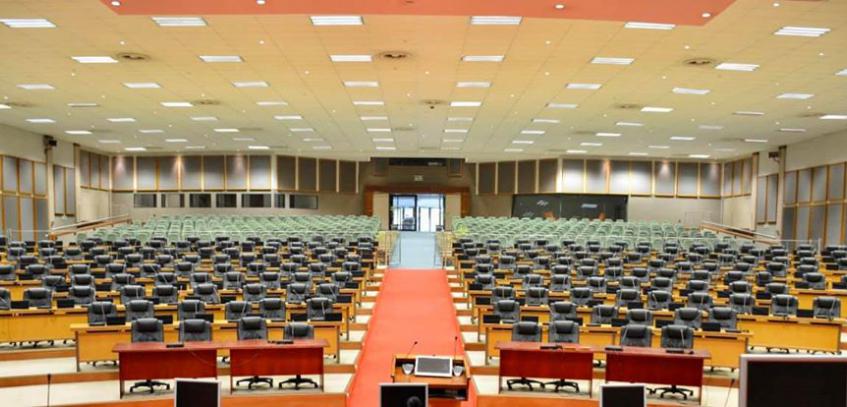The Virtual Joint sitting of the Pan-African Parliament (PAP) Permanent Committee on Transport, Industry, Communications, Energy, Science and Technology and Committee on Trade, Customs and Immigration Matters has taken stock of the impact of COVID-19 on free movement of persons in Africa.
The Sitting was engaged on how African Union (AU) Member States and Regional Economic Communities (RECs) have managed free movement during the pandemic (challenges, opportunities and mechanisms put in place to ensure safety during movement); and the re-opening processes in different parts as well as suggestions on how these can be handled better. Members of the PAP were also urged to facilitate and support the ratification and domestication of the Protocol on free movement of persons in Africa in their respective legislatures.
In 2018, the AU in implementing its flagship project on free movement of persons in Africa and the African passport, adopted the Protocol to the Treaty Establishing the African Economic Communities relating to Right of Entry, Right of Residence and Right of Establishment. The Protocol provides for temporary closure of borders and denial of entry to individuals on health and security considerations.
In her briefing to members of the PAP, Ms. Celine Bankumuhari of the Department of Health, Humanitarian Affairs and Social Development (HHS) at the African Union Commission noted that while the closures and limited access seen on the continent were not in contravention of the Protocol, these were not without challenges, which if not addressed could have long lasting implications on the free movement agenda in Africa.
“In a bid to curb the rapid spread of the virus, most countries in Africa took measures which included quarantine and isolation, closure of public spaces, borders and airports. This paralysed most means of transport by air, sea and land. With time, there has been some progress with some countries re-opening fully while for others, the process remains ongoing. The Protocol on Free Movement of Persons offers a clear framework for long lasting solutions to free movement. We call for the PAP’s involvement in the promotion and ratification of the Protocol,” said Ms. Bankumuhari.
So far, 32 AU Member States have signed the Protocol while only four (4) have deposited instruments of ratifications. The Protocol requires 15 ratifications to come into force.
Hon. Alex Chersia Grant, Deputy Chairperson of the PAP Committee on Trade, Customs and Immigration Matters called for collective efforts to enhance free movement of persons in Africa, and to do so safely in the context COVID-19. He stressed the need to address the ripple effects of the obstacles to free movement on other sectors.
“There is urgency for collaboration among all stakeholders including Member States, RECs, Partners, Civil Society, Private Sector and common citizens and Parliamentarians to create synergies between free movement policies and practice, especially in the implementation of these policies and how they affect other relevant sectors such as the continental free trade area, the private sector and travel for the common citizen, whose movement is affected by the pandemic,” said Hon. Grant in his response to the presentation by the AUC on the Impact of Covid-19 on Free Movement of Persons in Africa.
Hon. Alhagie Mbow, Acting Chairperson of the PAP Committee on Transport heeded the call for the ratification of the Protocol on Free Movement. He also hailed the guidelines adopted by the AU, as part of the Protocol, on the production and issuance of the African Passport.
“We are encouraged by outcomes from ongoing consultations at continental level on the effects of COVID-19 on free movement. We are hopeful that these engagements will result in the development of guidelines to ensure the ease of movement of persons and goods/services. As Parliamentarians, we have to play our role by ensuring that Protocols are ratified to provide the necessary tools to accelerate the integration of our continent. Freedom of movement and economic integration are the cornerstone of the AU’s Agenda 2063.”concluded Hon. Mbow.
The ongoing Virtual Joint Sitting of the Committees on Trade and Transport is also expected to examine progress made by African countries towards the implementation of the African Continental Free Trade Area (AfCFTA); status of the transport sector in Africa in the time of COVID-19; mobility of cross-border traders and COVID-19; update on the status of signature and ratification of the African Union Convention on Cyber Security and Personal Data Protection among others.








